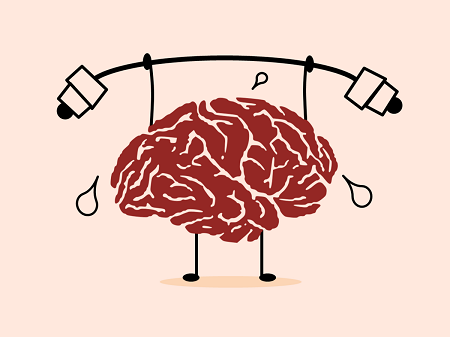Are you confident that your body care routine is as effective as it could be? Have you ever wondered if you’re doing enough to keep your skin, health, and well-being in top shape? What if there were simple, overlooked steps that could make a huge difference in how you feel every day? If these questions resonate with you, it’s time to rethink your body care approach.
Taking care of your body is essential for maintaining good health and feeling your best. A well-rounded body care routine touches on several important areas, including skincare, hygiene, nutrition, exercise, and mental health. Let’s dive into each aspect and explore practical tips that can help you look and feel great.
1. Building a Solid Skincare Routine

First and foremost, a good skincare routine is crucial for healthy, glowing skin. Here’s how you can set up a simple yet effective regimen:
Cleansing: Start with a gentle body wash or soap suited to your skin type—whether it’s dry, oily, or sensitive. Cleansing your skin removes dirt and sweat, which helps prevent breakouts and keeps your skin fresh. It’s best to cleanse daily to keep your skin clean and clear.
Exfoliating: Exfoliation is another key step that helps remove dead skin cells and promote new cell growth. It is good to use a scrub or chemical exfoliant at least once or twice a week. This will keep your skin smooth and vibrant. However, be careful not to over-exfoliate, as it might irritate your skin.
Moisturizing: Next, apply a body lotion or cream to keep your skin hydrated. Ingredients like hyaluronic acid or shea butter are great for locking in moisture and keeping your skin soft. Moisturizing regularly helps maintain your skin’s suppleness and prevents dryness.
Sun Protection: Finally, don’t forget sun protection. Applying sunscreen every day is essential to protect your skin from harmful UV rays. Opt for a broad-spectrum sunscreen with SPF 30 or higher to avoid sun damage and premature aging.
2. Essential Hygiene Practices
Maintaining good hygiene is vital for overall health and comfort. Incorporate these habits into your daily routine:
Bathing: Shower regularly with lukewarm water and a mild body wash. Ensure you clean all areas of your body, including often-missed spots like your back and feet. Regular bathing keeps you feeling fresh and helps prevent body odor.
Oral Care: Brush your teeth twice a day and floss daily. Good oral hygiene helps in preventing cavities, gum disease, and bad breath. Regular visits to your dentist are also important for maintaining oral health.
Hand Washing: Wash your hands frequently with soap and water, especially before eating or after using the restroom. Proper hand hygiene is crucial in reducing the spread of germs and avoiding infections.
3. Nutrition and Hydration

What you consume plays a big role in your overall health. Follow these nutrition tips to support your well-being:
Balanced Diet: Aim to eat a variety of foods. Include plenty of fruits, vegetables, lean proteins, whole grains, and healthy fats in your diet. A balanced diet helps support bodily functions and maintains a healthy weight.
Hydration: Drink plenty of water throughout the day to stay hydrated. Proper hydration supports digestion, keeps your skin healthy, and helps your body function well. Aim for about eight 8-ounce glasses of water daily to meet your hydration needs.
4. Exercise and Physical Activity
Regular physical activity benefits both your body and mind. Here’s how to incorporate exercise into your routine:
Cardio Exercise: Engage in activities like walking, running, or cycling. Try to aim for at least 150 minutes of moderate-intensity cardio each week. This improves heart health and increases stamina.
Strength Training: Don’t forget strength training. Incorporate exercises that build muscle, such as weightlifting or bodyweight exercises, at least two to three times a week. This helps improve muscle tone and supports bone health.
Stretching and Flexibility: Adding stretching or yoga can enhance your flexibility and reduce muscle tension. Stretching helps maintain a full range of motion and can prevent injuries.
5. Mental and Emotional Health

Looking after your mental and emotional well-being is just as important as physical health. Consider these practices to support your mental health:
Stress Management: Practice stress management techniques like meditation, deep breathing, or mindfulness. These methods help reduce stress and improve your overall mood.
Sleep: Aim for 7-9 hours of quality sleep each night. Good sleep is important for physical recovery, cognitive function, and emotional stability.
Self-Care: Make time for activities that you enjoy and that helps you to relax. Whether it’s a hobby, spending time with loved ones, or simply unwinding, self-care is essential for maintaining a positive outlook.
6. Regular Health Check-ups
Routine medical check-ups are crucial for catching potential health issues early. It is an important aspect of the body care routine. Schedule regular visits with your healthcare provider for:
General Health Exams: Regular physical exams help monitor your overall health and detect issues before they become serious.
Specialist Consultations: Depending on your needs, consult specialists like dermatologists, dentists, or nutritionists for personalized advice and treatment.
Personalizing Your Body Care Routine
Remember, your body care routine should be tailored to your individual needs and lifestyle. Adjust your practices based on factors like age, skin type, and health conditions to find what works best for you.
A thorough body care routine involves more than just skincare. It includes maintaining good hygiene, following a balanced diet, staying hydrated, exercising regularly, managing stress, good sleep, and getting regular health check-ups.
By integrating these practices into your daily life, you can enhance your overall well-being and enjoy a healthier, more vibrant life. Prioritize body care and make adjustments as needed to create a routine that fits your personal needs and goals.






